Close

As India’s property market develops in 2025, homebuyers are left with an important question: Should they buy a freehold or leasehold property? Knowing the difference isn’t only legal—it’s monetary, pragmatic, and emotional.
Whatever your status as a property buyer—first-time buyer or veteran investor—this NK Properties guide assists you in making an informed decision.
With declining home loan rates and increasing housing demand in Tier-1 and Tier-2 cities, ownership forms are under scrutiny—especially as more people shift from renting to buying.
A freehold property provides you with sole ownership of the building as well as the land on which it is constructed. Once registered, the owner becomes the absolute owner, without any lease obligations or periodic payments to any authority.
Full legal title
Right to transfer, lease, or mortgage
No restrictions from development authorities
Independent houses or villas on privately owned land
RERA-approved builder floors
Converted DDA flats in Delhi
In a leasehold model, you own the property but not the land. The land is leased by a development authority or the government for a fixed period (usually 30–99 years).
Many Indian cities offer 99-year leases, renewable upon payment of a nominal fee. However, lease renewal terms can often be vague or face bureaucratic delays.
DDA flats in Delhi (before conversion)
MHADA flats in Mumbai
BBMP land leases in Bangalore
| Aspect | Freehold | Leasehold |
|---|---|---|
| Ownership | Full rights over land & structure | Only structure, not land |
| Resale Value | Higher | Moderate |
| Legal Process | Simple and fast | May require authority consent |
| Loan Approval | Easily approved | Requires more scrutiny |
| Tenure | Perpetual | 30 to 99 years |
| Rentability | More desirable | Less flexible |
Freehold properties are best suited for long-term investors, homeowners, and legacy seekers. Buyers have full control over renovations, leasing, or resale.
Main Advantages:
No ground rent or renewal charges
Easy to sell or transfer by inheritance
High appreciation and resale value
Freehold owners are responsible for property tax and maintenance costs. While this provides control, it can increase out-of-pocket expenses.
Leasehold properties—especially in urban metros—are generally 10–20% more affordable than freehold properties in the same area. Ideal for budget-conscious buyers.
Advantages:
Lower initial cost
Ideal for short-term stays or rental returns
Often located near public infrastructure
Require permission for renovation or resale
Less attractive near lease expiry
Renewal may involve high fees or changing terms
Freehold properties are easier to sell, attract more buyers, and receive quicker approvals.
Freehold titles are easier to process. Leasehold properties require extra checks—lease terms, permissions, dues, etc.
Freehold properties appreciate more due to land ownership. Leasehold ROI is moderate and suits short- to medium-term investments.
Freehold units fetch higher rents due to flexibility. Leasehold flats in metros like Mumbai can still yield steady returns due to high rental demand.
Banks are more confident lending for freehold properties due to full ownership and long-term security.
Requires land authority’s consent
Loan tenure may be restricted
Applicable mostly to long-term leases (80+ years)
In Delhi and Mumbai, leasehold to freehold conversion is possible by paying a conversion fee to authorities like DDA or MHADA, boosting property value.
Initiatives like Smart Cities Mission and Housing for All promote freehold ownership, especially in urban planning and plotted schemes.
Delhi NCR: DDA flats are now being converted to freehold, increasing resale value.
Mumbai: MHADA plots are mostly leasehold—resale can be challenging.
Bangalore: Most BDA sites are freehold, preferred for long-term investment.
At NK Properties, we help you:
Verify property titles
Examine lease conditions
Flag potential legal risks
From stamp duty to mutation, our team ensures a smooth, end-to-end process for both freehold and leasehold property purchases.
Can a leasehold property be changed to freehold?
Yes, via a government conversion scheme with a specified fee.
Is leasehold property bad for investment?
Not always. If lease duration is long and area has demand, it can be worthwhile.
Can I get a home loan on a leasehold property?
Yes, if the lease has 30+ years remaining and required documents are provided.
Which is preferable for resale: freehold or leasehold?
Freehold, due to complete ownership and less legal complexity.
Are leasehold houses more expensive?
No, they’re usually 10–20% cheaper than equivalent freehold options.
Do I own the land in a leasehold house?
No, the land is owned by the lessor (often a government body).
To wrap up:
Freehold properties are ideal for long-term security, control, and better returns.
Leasehold properties are cost-effective for short-term use and low entry cost.
If you’re a first-time buyer with a limited budget, leasehold might work. But if you’re looking to build long-term wealth, freehold is the smarter choice.